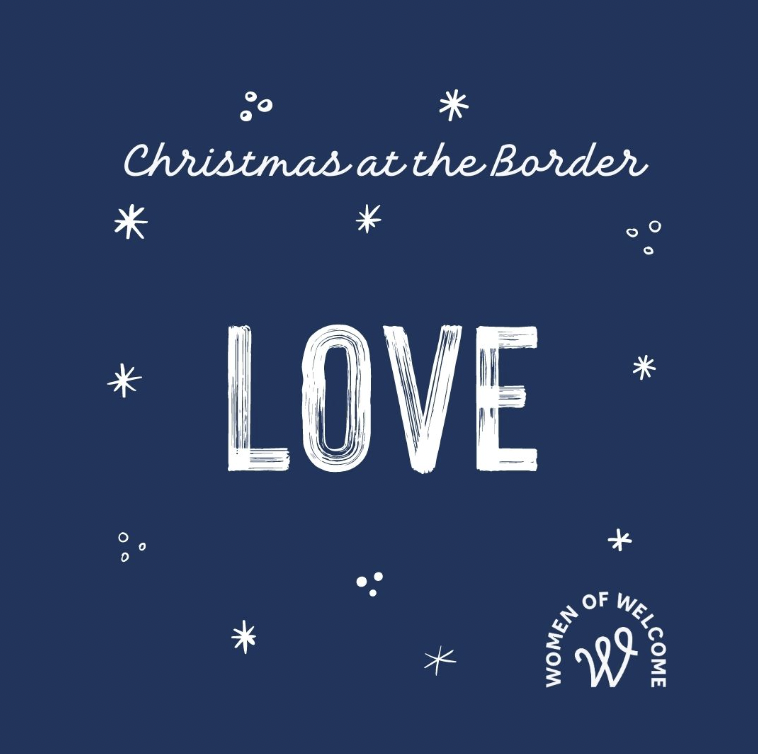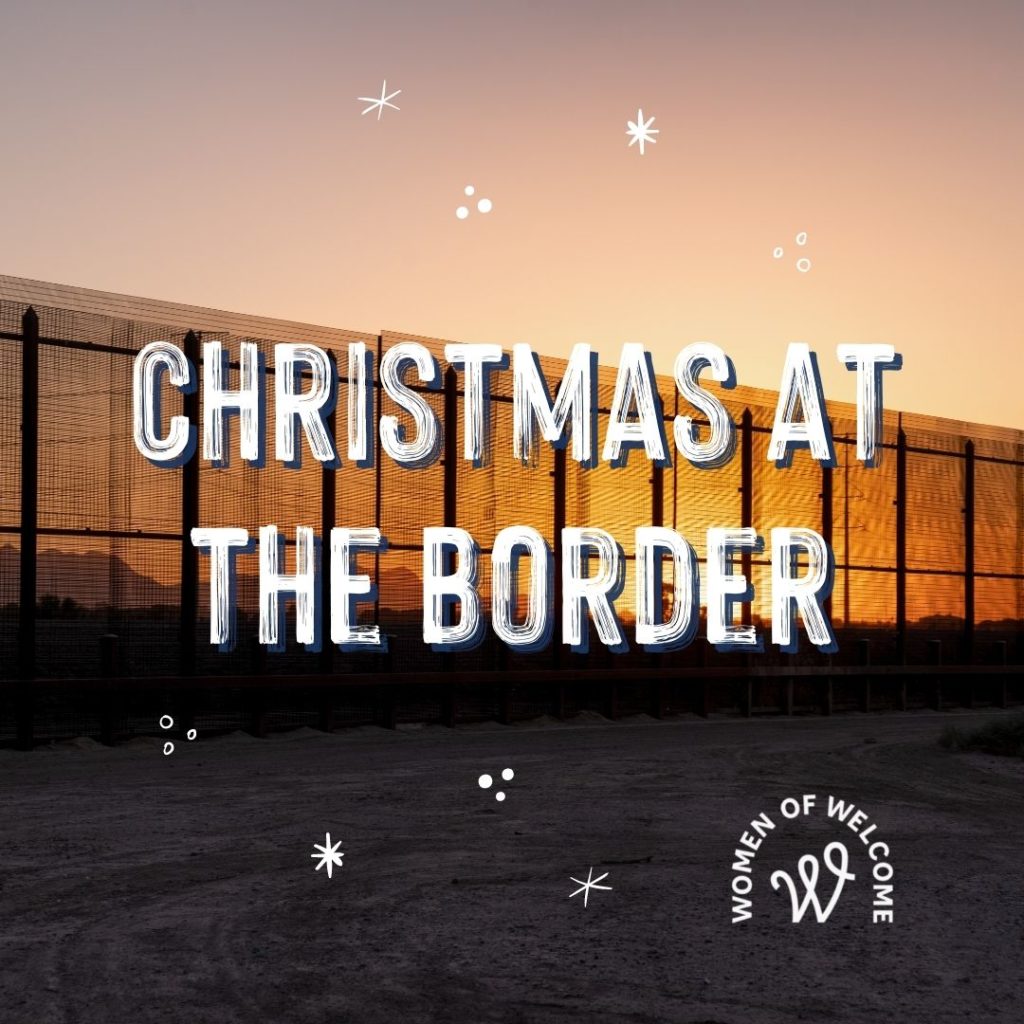Each week of Advent we will be sharing reflections as we wait for the hope that is to come. Advent is a time of longing, of anticipation. This Christmas, let’s take time to consider the waiting that immigrants and refugees experience, and the hope they cling to as they look for a better future. What better way to walk with our brothers and sisters than to, like Jesus himself, sit in the human experience of waiting with them. Let’s remember. Let’s pray. And may it lead us to compassion and action in the coming year.

WEEK 1: HOPE
Today marks the start of Advent, the time we prepare our hearts for the coming of Christ. Many will light a candle in an Advent wreath today in church or at home. That first flickering light represents hope. It is also called the prophecy candle. The light reminds us of the years of darkness in which people waited for the Messiah to come, holding onto the prophecies that gave them hope while in their longing.
We too, wait and long for Christ to come. Jesus’ birth meant that God walked beside us, with us. He entered the human struggle of hunger, suffering, injustice, and crossing borders out of fear and need. His own family fled to Egypt. Our God knows what it is like to be far from home and live in a world that is full of hurt.
Yet, that very God with us spoke these words:
“The Spirit of the Lord is upon me,
because he has anointed me
to bring good news to the poor.
He has sent me to proclaim release to the captives
and recovery of sight to the blind,
to set free those who are oppressed,
to proclaim the year of the Lord’s favor.”
Jesus fulfilled the prophecy in Isaiah, the hope the people clung to waiting for one to come and set the captives free. It is to the poor, the captive, the blind, and the hurting that Jesus asks us now to go. He sends us with our small lights into the world, asking us to carry on his work of loving neighbor as ourselves. We do not go alone. The Spirit of God guides and enables us to shine the light of hope in dark places. And we hold to hope that a day will come when there are no more nations and borders and fleeing.
Until then, we are to bring that hope with us in all that we do.
As we light the candle of hope this day, let’s remember the hope that compels so many to leave their homes in search of a safe place.
At the border today there are thousands of people who are following the same hope we cling to.
May we learn from them how to battle huge odds in the belief that a better future is possible.
And may we walk alongside them toward building that better future here and now.
WEEK 2: PEACE
Today begins the second week of Advent. If you’re lighting candles, you’ll be lighting the candle of peace.

If you’re asked what the opposite of war is, you’ll probably say peace, right? So many of our refugee sisters and brothers are fleeing wars in their home countries—in Ukraine, in Syria, in the Democratic Republic of Congo, and across the globe. And while we absolutely pray for ceasefires, the peace of Christ does not merely end conflict, but actively builds shalom, repairing what was broken.
Those of us who have been brought together by our pursuit of God’s heart for refugees and immigrants long for peace. Our own relationships may feel fractured because of those we love dearly who do not understand why we engage in this topic, or maybe they are even hostile in their language around immigration. We may be tempted to “keep the peace” by not speaking up with gentle kindness, or not reaching out to new neighbors for fear of further conflict. But, the peace of Christ is not passive, it takes active steps towards shalom.
In Jeremiah 6:14, God speaks through His prophet these words against those who mistreat His people. “They dress the wound of my people as though it were not serious. ‘Peace, peace,’ they say, when there is no peace.”
The sojourner, the immigrant, the stranger in a strange land: these people are very close to the heart of God, and we are reminded over and over and over throughout Scripture to specially care for them. We have to heed the call of the prophet and make sure we are not putting Band-aids on broken bones and calling them healed.
Our brothers and sisters at the border desperately need peace, the real, gritty shalom-making peace that Christ invites us to build alongside Him. May we be women who do not say “peace, peace” when there is no peace, but women who reach across the aisle, across the border fence, to build shalom for our neighbors.
WEEK 3: JOY

The LOVE of Jesus came down from heaven to physically touch the world and all who live in it. Sometimes we think we have to do something BIG for God in order for it to make an impact. But God never asks us to do big things, he simply asks us to love him and others well.
Sometimes loving others well won’t make sense to your friends and family. Sometimes loving well won’t look like what you thought it would. “Sometimes people won’t understand what the love of Christ compels you to do…you should do it anyway.”
Let the love of Jesus take you somewhere unexpected this season. Let it lead you to an uncomfortable but beautiful space. Remember, you’re not bringing God to these new spaces and places, he’s already there.
WEEK 4: JOY
 The weary world rejoices. Who’s familiar with these lyrics from O Holy Night?
The weary world rejoices. Who’s familiar with these lyrics from O Holy Night?
Many of us may find we are more familiar with the weariness than the rejoicing. We carry the challenges of our work and family. We shoulder the burdens of our friends and neighbors. And we choose not to look away from the pain and suffering of the world around us.
How do we express joy in a world that is oh so weary? It might feel dismissive or disrespectful. How can we be joyful when pain is all around us?
Joy and sorrow co-exist. They have to. To accept one without the other is incomplete. How do we hold both?
Maybe it is less about “choosing joy” (as though it’s one or the other) and more about “including joy” when it can be easy to lean into weariness alone.
We include joy this season.
We make space for joy to dance in.
We recognize God’s presence in both our joy and our sorrow.
We rejoice in the Lord always (Philippians 4:4).
On this final week of Advent, we pray your heart is filled with Hope, Peace, Love, and Joy and we wait to receive the Christ child.



 The weary world rejoices. Who’s familiar with these lyrics from O Holy Night?
The weary world rejoices. Who’s familiar with these lyrics from O Holy Night?
 This resource answers the most common questions Christians have about immigration and equips you to engage conversations with biblical clarity, truth, and grace.
This resource answers the most common questions Christians have about immigration and equips you to engage conversations with biblical clarity, truth, and grace.